Fiction
My First Love – Part Two

The judge’s words that afternoon were not a surprise to me at all. I knew I was guilty and was not expecting anything less than a prison sentence. I was impatient when he, instead of going forward to mention the punishment that awaited me, went on enumerating charge after charge, with an exaggerated display of professionalism.
I had, since childhood, hated judges because they are people who seem untouchable. Some journalists sometimes ignorantly boast of untouchability. “I can make and unmake you. You cannot defeat the man who buys ink in barrels,” they would say. Corruptible politicians shudder when they hear such threats from journalists worth their salt. But let that journalist come before a judge. Who judges the judge? Even if you appeal against the ruling, God will not send angels from heaven to preside over the proceedings.
I also did not understand why judges were addressed as “Lords”. It is a profession I vowed never to go near but today, I found myself before one merciless judge whom I had to address “My Lord.” In my case, I knew I was not going to be set free, but when this old judge got to the peak of his judgment, I was stunned.
As soon as he mentioned that I was to be sentenced to twenty years imprison in hard labour, the noiseless room turned into a stampede. I did not understand the situation until I saw my father carrying my unconscious mother into the car. A crowd of people followed while other curious onlookers crowded around me. I stood there, speechless, worried and confused. The world went blank. I saw nothing and my head began to throb. Then I felt two hands griping mine firmly. This was followed with handcuffs. I made no objection. My mother or father would have whispered a word of comfort into my ears, but neither of them was around when I was being whisked away.
Life in prison was like life in hell. For someone like me who had everything provided for me by my parents, it was an experience too hard to bear. The first few days were the most difficult ones I will never forget, not even in my grave. Prison is not a reformative home as it is mistaken to be. There, people are respected based on the gravity of the crimes that brought them there. Prison officers also transact a lot of businesses there. While some brought food items like gari and other staples to sell, others also managed to smuggle in cigarette and Indian hemp and sold to inmates of the prison. Homosexuality was like a hobby in those mosquito-infested dormitories. I was taunted, flogged and kicked as part of my “welcome address”. Before I got there, my offence was already known to them.
Life was not worth living, but just as I thought of ending it all, I met the prison chaplain. He was a nice man and you needed not to have spiritual eyes to know that he was a true Man of God. He was the one who was courageous enough to break the bad news to me. As soon as I got to the prison, I kept on asking about my mother’s condition from those who went out. I was deceived that she had regained consciousness and had been discharged. That news became a source of comfort to me in those few days, until the chaplain gathered courage one evening and told me the actual consequences of what I had done.
My mother could not regain consciousness and when my father said he was going to call family members on the phone and inform them about the incident, he never returned. His body was later found dangling at the end of a rope tied to the branch of a mango tree. It was the kind of news that was enough to drive me crazy or compel me to end it all, but the chaplain’s encounter with me that day gave me enough peace to remain alive. Then one afternoon, I had the biggest shock of my life.
It was a fine Saturday afternoon when inmates received visitors. I had never been visited by anybody after my parent’s burial, and I did not want any visitor too. Life was a personal battle and I had to face it alone. But this very afternoon, I was told that I had a visitor. Who could it be?
At the visitors’ room, I could not make any familiar face out till a man stood up. His face looked familiar but haunting. I tried hard to remember him, and when I finally did, I cursed the day of my birth. The man was Serwaa’s father. What on earth did he want from me? Why could he not forgive me?
Then to my dismay tears started flowing freely from his eyes when our eyes met. Then he knelt and held my feet and began to apologize in-between sobs. I uttered no word. His wife who sat at the other side of the room bowed and I later realized that her cloth was soaked with tears. I did not understand their weeping and even the visit. I said nothing and when they were tired of their unforgiven apologies, they left some gifts for me and went away. At first, I decided not to taste any of the provisions they brought, but upon a second thought, I changed my mind. If it contained any poison, death would not be as painful as living in eternal agony and regret.
He made his visits regular. It was during his third visit that he was able hold himself together and told me how he felt about my situation. It was he who told me that before my father hanged himself, he willed all his property to an orphanage. He therefore promised to take care of me. I could not believe my ears when I heard this. It was as though I was dreaming. I neither accepted nor rejected that proposal. I knew I was alone in my own secluded world.
Besides, it was difficult to trust what this man was saying. How possible was it for him to have forgotten the atrocities I had caused him and was ready to reconcile with someone who had rendered their marriage childless, for Serwaa also happened to be their only child. I also remembered how this man trapped me in the house that fateful Sunday afternoon. I said nothing, not even a word. I was very nervous because everybody’s attention seemed to have been drawn to us.
A former minister of state was also serving in the same prison but his offence was different from mine. He had looted the treasury of our poor country, and was sentenced to ten years in hard labour. But in prison, the term hard labour did not exist for those constitutionally protected criminals who were finally brought there. The rich neither ate our food nor did the type of work we did. They had visitors every weekend so their stock of food was always enough for them and perhaps those inmates who ran errands for them. On this particular afternoon, this convicted minister’s family members and acquaintances were there in their numbers. They sat next to where I sat with my in-law that never was, and seemed very interested in our conversation. All eyes pieced at me.
I wanted to be relieved to go back to my new home, the prison. Then a thought broke my heart beyond consolation. How could my father do such a thing? Why could he not forgive me? The answers I got from these questions were tears. I went back to my dormitory without a word to Serwaa’s parents again.
I do not know how Serwaa’s parents got to know the prison chaplain. He had a great deal of time making me understand that there was no guile in their attempt to cater for me.
I spent twelve out of the twenty-year sentence because I was lucky to have been among thirty-nine others who benefited from the president’s prerogative of mercy. Serwaa’s parents were there at the prison to take me home. I was later told they had written to plead with the Chief Justice and the prison authorities to recommend me for inclusion in the President’s list of prisoners to be freed. I was reassured to feel at home and forget about the past, for no amount of thinking and regret could undo the harm that had been done.
So for the past three years I have lived in this magnificent but virtually empty house. Without Serwaa the whole world looks empty a vacuum. Now, I am treated like a son but it is difficult or rather impossible to forget the past, especially about Serwaa.
Today I am alone in the house. I cannot go back to school and every minute I spend remembering the past, made me wish the world never existed. Life is not worth living without Serwaa. I cannot take my eyes off her photograph which smiles at me from the wall opposite. This genial smile from such a bewitchingly beautiful face should have been reciprocated, but instead it gets back nothing but tears. Time, they say, heals. This is partly true. I do not remember much about my parents, but not Serwaa. After twelve years, my love for her has still not diminished.
It is now that I understand the message clearly. Yes, it pays to wait. If I had waited, life would have been something different. That short affair and pleasure has spelt the doom of a family that once remained the talk of the town. It has also ended my ambition of becoming a medical doctor. What I regret most is the premature departure of the girl, who would have now been a beautiful woman, from the land of the living.
I regretted that very day it happened. I still remember the tears she shed and the touching words she spoke that afternoon.
“Will you marry me?” she asked after everything had happened.
I was too ashamed to talk so I nodded affirmatively. Though she saw me nod, she repeated the question trice. When I summoned enough courage to open my mouth, I said yes and went on to ask why she asked that question since I told her from the very beginning that I was going to marry her.
“I have betrayed my mother,” she said between sobs. “She told me that as a girl, my virginity is my dignity and that if I lose it before marriage, there are so many pregnant questions that my husband may not ask. It will also give him the reason not fully trust me because of those unasked questions. So, please, for God’s sake, let us not do it again but promise you will not betray me. I have sold the trust, pride, and the dignity of my womanhood to you. Please, do not deceive me,” she ended, still weeping bitterly.
Serwaa felt very hurt and that was when I started regretting, not knowing the real consequence was yet to come. I felt very bad myself. I was never able to look at her straight in the face until she died.
I had resolved to stay with her alone till we married and thereafter remain faithful to her till death did us part. Men, they say, are like butterflies and would like to perch on beautiful flowers all the time. But I’m sure I could have held on to my promise, because she was beautiful by all standards. In terms of character, she was simply peerless. But that ambition can now be fulfilled only in heaven or hell, for I do not know where she is now. If I knew exactly which of the two eternal worlds she belonged, there I would surely go.
THE END
This story was first written by Manasseh Azure Awuni in 2004 when he was a student of Krachi Senior High School. It won him a prize in an essay competition organized that year by the Kwame Nkrumah University of Science and Technology branch of Volta Region Students Association of Ghana (VORSAG). It is from that story that he took the name of the character in the Letter to My Future Wife column – SERWAA.

-
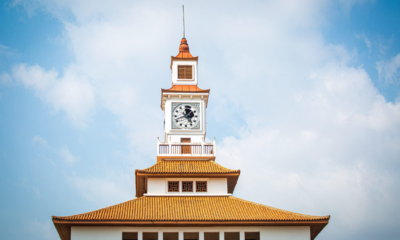
 Random Thoughts8 months ago
Random Thoughts8 months agoA Dutch Passport or a Ghanaian PhD?
-

 Foreign News10 years ago
Foreign News10 years agoEvery Animal Meat Is Not Beef! See All Their Names
-
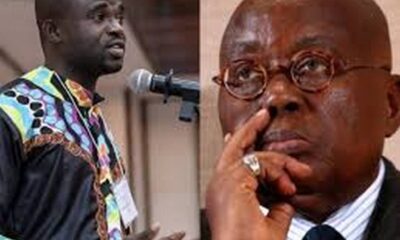
 Manasseh's Folder9 months ago
Manasseh's Folder9 months agoManasseh’s Praise and Criticism of Akufo-Addo’s Action on the SML Scandal
-

 Manasseh's Folder7 months ago
Manasseh's Folder7 months agoIs Napo Arrogant? And Does It Matter?
-
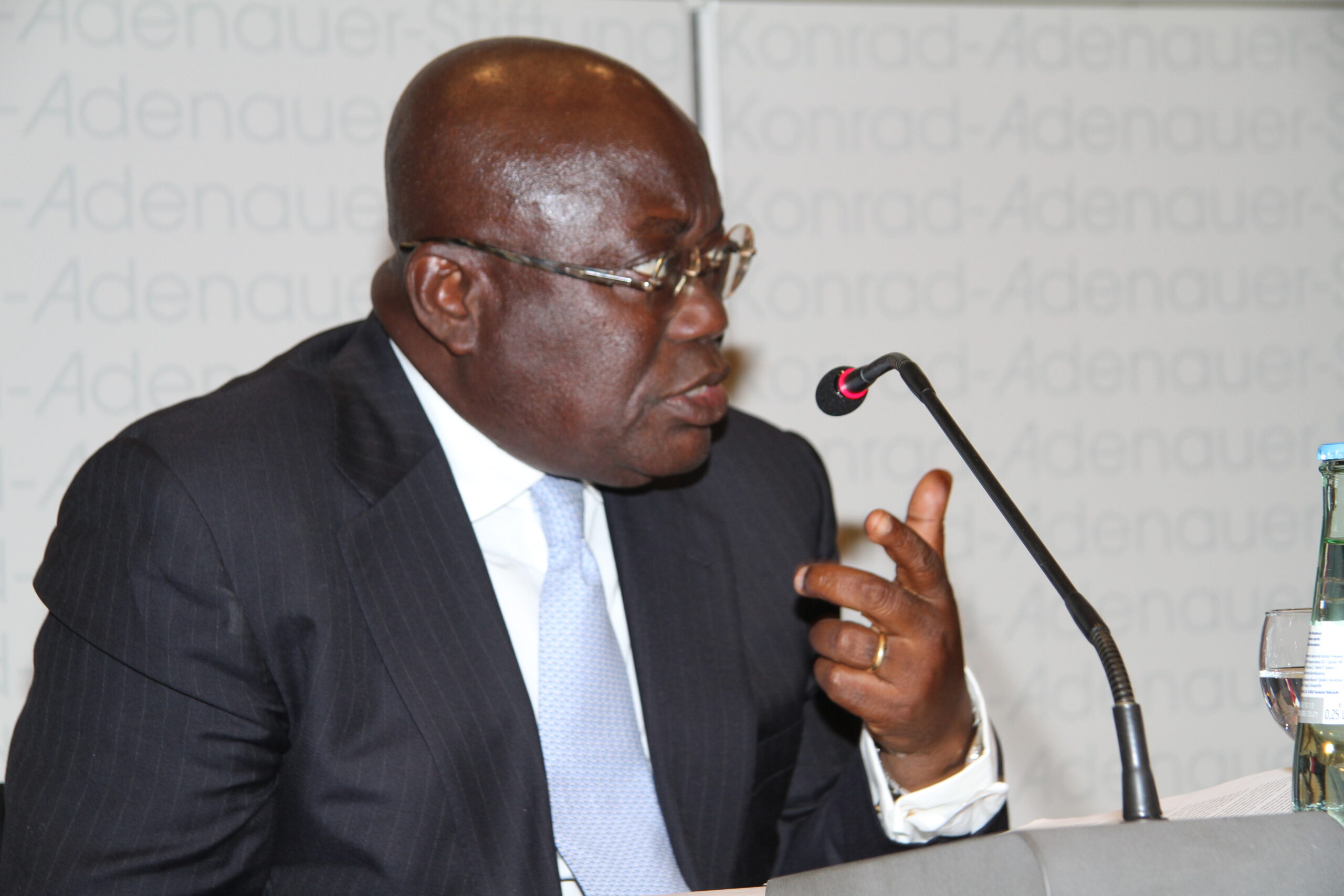
 Guest Writers8 years ago
Guest Writers8 years agoProf. Kwaku Asare writes: Nana Akufo-Addo has no law degree but…
-
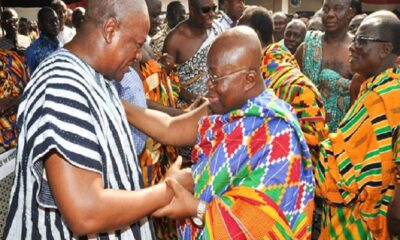
 Manasseh's Blog Posts7 months ago
Manasseh's Blog Posts7 months agoWho Started Free SHS?
-
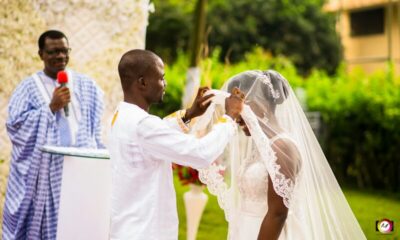
 Manasseh's Folder8 years ago
Manasseh's Folder8 years agoEXCLUSIVE PHOTOS: Manasseh Azure Awuni marries “Serwaa”
-

 Guest Writers6 years ago
Guest Writers6 years agoIs “Engagement” a Legal Marriage?